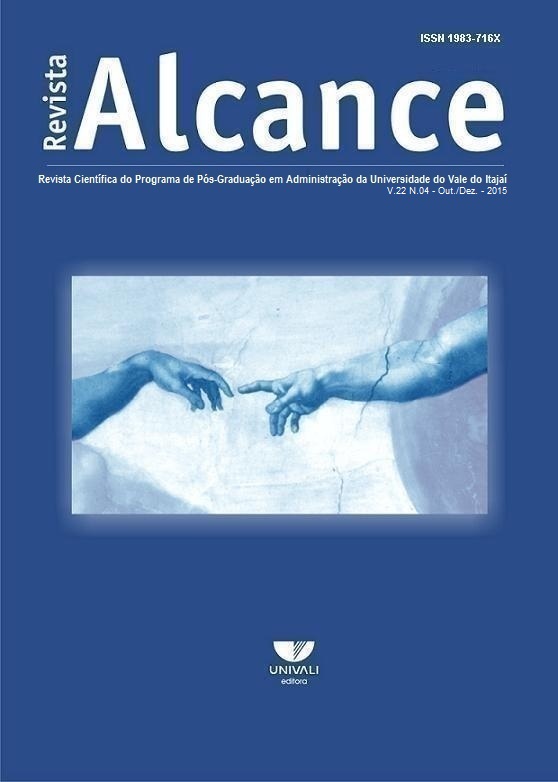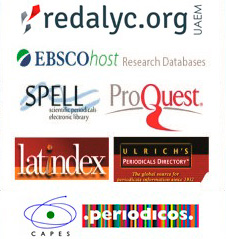CULTURA E ORGANIZAÇÕES: PARA ALÉM DA LACUNA EPISTEMOLÓGICA / CULTURE AND ORGANIZATIONS: BEYOND THE EPISTEMOLOGICAL GAP
DOI:
https://doi.org/10.14210/alcance.v22n4.p570-585Resumo
As duas correntes epistemológicas principais do estudo sobre cultura, no que tange às organizações (positivismo e interpretativismo), ilustram grande dificuldade para ultrapassagem de suas dimensões principais de exame. Sustenta-se que essa dificuldade decorre, em certa medida, da não realização de trabalhos multiparadigmáticos, mesmo diante da tentativa de conexão das correntes de análises da integração, da fragmentação e da diferenciação. Assim, esse ensaio teórico problematiza a manutenção dessas barreiras entre correntes epistêmicas e níveis organizacionais. Tem como objetivo propor formas de conexão entre as linhas de pesquisa sobre cultura e organizações, a partir do local intermediário que o filósofo Michel Foucault utilizou para desenvolver sua analítica. Como resultado, foram realizadas três proposições. A partir do período arqueológico do autor, uma alternativa foi apresentada: a busca pelos modos de ser da ordem que fundamenta a cultura. Da genealogia emergem as estratégias e as tecnologias de poder, visíveis no espaço entre saberes, relações com setores, grupos organizacionais, sujeitos. Por fim, a proposição coerente com o elemento ético\estético enfatiza a busca por formas de práticas que o sujeito realiza sobre si, para se relacionar com as tecnologias de poder. Palavras chaves: Cultura organizacional. Análise multiparadigmática. Michel Foucault. Abstract The two main epistemological streams of the study of culture, in relation to organizations (positivism and interpretativism), show great difficulty in going beyond their main dimensions. We argue that this difficulty is caused, to some extent, by the lack of multiparadigmatic papers, even before the attempt to connect the streams of integration, fragmentation and differentiation. This theoretical essay discusses the barriers between epistemic streams and across organizational levels. It proposes forms of connection between the lines of research on culture and organizations, from the intermediate location that the philosopher Michel Foucault used in developing his analytical path. Based on the archaeological period of the author, an alternative was presented: the search for ways of being of the order that forms the basis of culture. Out of genealogy, emerge the strategies and technologies of power, visible in the space between areas of knowledge, relations with sectors, organizational groups, and subjects. Finally, the proposal consistent with the ethical/aesthetic element emphasizes the search for forms of practices that the subject performs on the self, to relate to the technologies of power. Keywords: Organizational culture. Multiparadigmatic analysis. Michel Foucault.Downloads
Publicado
2016-03-24
Edição
Seção
Artigo


